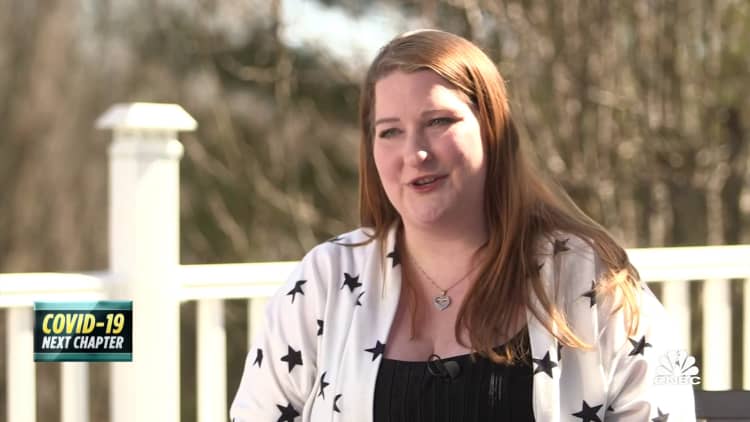Americans shouldn't hesitate to seek medical care if they believe they are suffering from lingering and debilitating symptoms due to Covid-19, a Centers for Disease Control and Prevention official advised Wednesday.
So-called long Covid is still not well understood by health experts, Dr. John Brooks, chief medical officer for the CDC's Covid-19 response, told a House committee. A primary care physician can help determine whether one is suffering from long Covid or an unrelated illness, he said.
"If you're having symptoms you haven't had before, something new following Covid [such as] chest pain, difficulty breathing, you can't get your thinking clearly, you're just not getting better the way you thought you should, have a low threshold to seek care," Brooks said during a hearing of the House Energy and Commerce Committee.
Generally, people worry about going to the hospital and wasting a physician's time on something that may not be too serious, especially during the pandemic, Brooks said. In cases of potential long Covid, which researchers are still trying to understand, people shouldn't do that, he said.
"That may be alright for the short term until we can really discriminate more clearly what defines this. We're in the stage of learning," he said.
Symptoms of long Covid, which researchers are now calling Post-Acute Sequelae of Covid-19, or PASC, can develop well after the initial infection, and severity can range from mild to incapacitating, according to public health officials and health experts.

Researchers at the University of Washington published data in February that found a third of patients reported ongoing symptoms, including fatigue, shortness of breath and sleep disorders, that persisted for as long as nine months.
Dr. Francis Collins, director of the National Institutes of Health, told the House committee Wednesday that people who have been hospitalized with the virus appear to have a higher chance of developing long Covid. But people who were not hospitalized can also end up with persistent symptoms, he said.
Older Americans, women and people who are obese also appear to have a higher risk of developing long Covid, Collins told the committee, adding the U.S. agency is working quickly to identify potential other risk factors.
The NIH launched an initiative in February to study long Covid and identify the causes and potential treatments.
Some people who have suffered from long Covid say they are finding relief after getting vaccinated, puzzling health experts.
Sheri Paulson, a 53-year-old North Dakota resident who had trouble getting out of bed months after her Covid-19 diagnosis, told CNBC in March she began to feel better five days after she got her first Pfizer shot in February
Collins said Wednesday that the agency has heard anecdotal reports of people feeling better after getting vaccinated. But he added large studies are still needed to determine whether the shots are actually improving symptoms and how.


